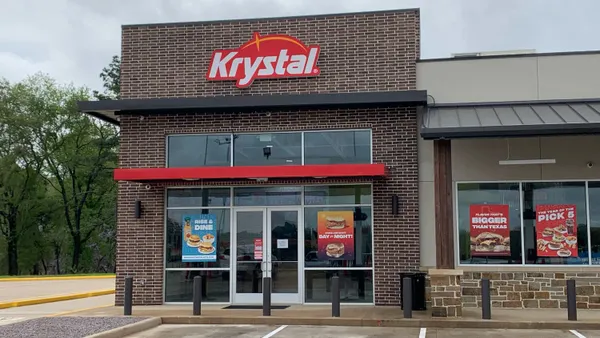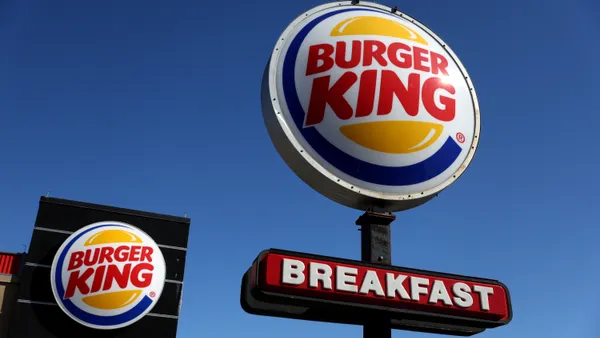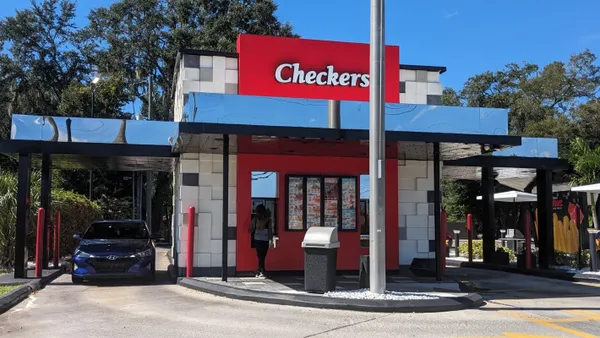UPDATE: Sept. 15, 2023: This piece has been updated to reflect that the California Assembly concurred in the Senate amendments.
Dive Brief:
- A major labor law deal passed the California state Senate in the waning hours of the legislative session Thursday, by a vote of 32 to 8.
- The deal, an amended version of AB 1228, repeals and replaces the FAST Recovery Act (AB 257), thereby instituting a wage setting council composed of representatives of industry and labor, with the power to advise, rather than modify, working conditions at fast food chains with more than 60 units nationwide.
- The passage of the amended bill kills the possibility of a California joint-employer liability law for the time being, though the National Labor Relations Board is working on its own standard.
Dive Insight:
The passage of the amended AB 1228 concludes a process that began in June, Sean Kennedy, EVP of public affairs for the National Restaurant Association, said. Around that time, Gov. Gavin Newsom’s administration began reaching out to SEIU and industry groups, and brokered negotiated meetings in July. Negotiations, Kennedy said, continued within hours of the deal’s announcement on Monday.
By backing the deal, SEIU and its allies have given up on the strong fast food council included in AB 257. That council would’ve had the power “to establish sectorwide minimum standards on wages, working hours, and other working conditions.”
AB 1228 repeals AB 257, replacing it with a council that has the power to set wages, within a narrow band, and to send proposed rules to the state labor commissioner to amend, repeal, alter or put through a standard rulemaking process. This makes the council a weaker regulatory body and more of an advisory commission than a standards setting body.
“The council has the ability to examine a host of issues in the restaurant space and provide meaningful input to the regulatory bodies,” Kennedy said. “That’s something that we can work with.”
The law sets the minimum wage for workers at QSR chains with more than 60 units nationwide at $20 an hour, beginning April 1, 2024. Following that, the council can set the wage level each year as long as the increase is below 3.5% or the rate of general inflation, whichever is lower. The repealed law could’ve set wages as high as $22 an hour to start.
The $20 wage “represents a huge investment by the quick service restaurant industry in its employees,” Kennedy said. “It's going to be certainly challenging for a sector that has so much competition. But it is one that we're comfortable with.”
Andrew Wiederhorn, board chairman and founder at Fat Brands, said the deal was reasonable.
“Everyone wants their employees to make more money,” Wiederhorn said. “It's important the parties came together with a reasonable compromise of a lower initial minimum wage.”
Wiederhorn said the wage, which applies only to QSR chains, will lead smaller chains and independent restaurants to raise wages to a similar level as they compete with QSR brands for workers.
Both Kennedy and Wiederhorn said the wage provisions will provide certainty and stability. That certainty and stability is underpinned by a provision pre-empting cities from setting their own sectoral minimum wages in fast food. SEIU, in its fight to organize homecare, used sectoral increases in local minimum wages as a political tool.
AB 1228 also alters the composition of the fast food council by making the representative of the state’s Department of Industrial Relations and Governor’s Office of Business and Economic Development into non-voting members. The deal retains two representatives each for brands, franchisees, workers, and workers’ advocates, but adds an unaffiliated, ninth member appointed by the governor.
The ninth voting member, Wiederhorn said, could act as a swing vote and a neutral arbitrator. He called that aspect of the deal “an excellent solution.”
The amended bill provides political certainty for restaurants and for organized labor by preventing what was shaping up to be a costly and contentious referendum on AB 257 next fall. The restaurant industry had already raised $63 million to fight AB 257 at the ballot box, in an effort mirroring gig employer’s overturning of AB 5 in the Proposition 22 election three years ago. With Prop 22 still mired in the courts, both sides had strong reasons to avoid a referendum.
“This is a better solution than rolling the dice at the polls,” Wiederhorn said.
Newsom’s administration asked the state legislature in June to revive the Industrial Welfare Commission, a Progressive-era agency with the power to intervene in working conditions and wage levels in low-paying industries. In August, Newsom signed a budget that included funding for the IWC. This commission could’ve given the state the power to raise wages in fast food regardless of the outcome of the proposed November 2024 referendum on the FAST Recovery Act (AB 257), Kennedy said.
The amended version of AB 1228 also scraps the joint-employer liability provision, which would hold franchisors liable for franchisee’s failure to follow some labor laws.
The bill returned to the assembly Thursday night, and the lower house agreed to the Senate’s amendments, public records show. The bill will go to Newsom’s desk for signature. The governor has until Oct. 14 to sign the law.














